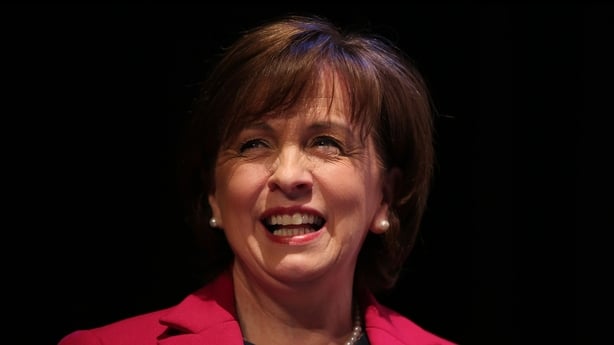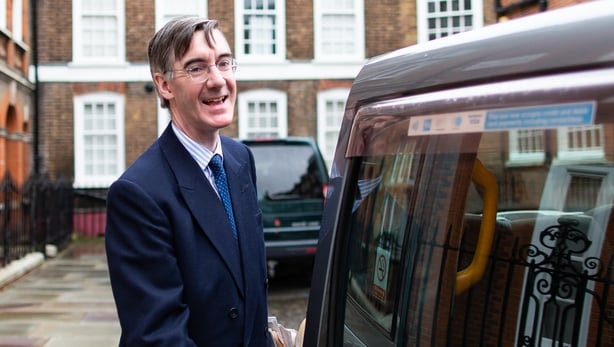The DUP used Diane Dodds to send the signal that it would not be coming to Theresa May's aid at the third time of asking.
It's an interesting truth that the MEP and the Prime Minister currently have a common predicament.
Diane Dodds is 60 and should have more to contribute to the politics trade. Theresa May is 62, so she is too is below the retirement threshold. But because of Brexit the pair, at loggerheads over the Withdrawal Agreement, are not sure whether they are coming or going.
Mrs Dodds has been an energetic and effective performer during her 15 years on the European circuit. She has been in "long goodbye" mode since the UK decision to leave the European Union.
She has been gathering her bits and pieces, saying her farewells in Brussels and Strasbourg, on the understanding that the UK would leave the EU tomorrow and she would not be contesting next month's European elections.
In recent days the slim possibility of one more European election campaign has surfaced. But she is unlikely to have many more centre-stage opportunities on the European mainland.

Last December, in order to survive an attempt to oust her, Theresa May had to make a promise that she would not lead the Conservative party into the next general election. In recent weeks she has moved from crisis to crisis, refusing to throw in the towel and accept that her time is up.
The intervention by the DUP today, through Ms Dodds, adds to the prime minister's seemingly endless angst.
The ten DUP MPs are unwilling to back the Withdrawal Bill, which if passed by the House of Commons, might give the prime minister the possibility of departing with some semblance of satisfaction.
There are two obvious reasons for the DUP stance.
Firstly there's the clinical exercise of number crunching. Nigel Dodds believes that even if the DUP changed sides and brought some Conservative Brexiteers with them, they would not muster the 75 votes Theresa May requires to reverse her most recent defeat.

The DUP noted the lukewarm response Jacob Rees Mogg received when he floated the idea of a pragmatic U-turn at a behind closed doors meeting of the ERG on Monday night. They are aware of Mr Rees Moggs' public agonising about his dilemma. They note Mr Rees-Mogg's conditional offer - I'll jump provided the DUP jumps. But their conclusion is, at the moment, the critical mass of defections would not be achieved.
The second reason is DUP DNA.
The party is innately cautious and that certainly applies to its Westminster leader, Nigel Dodds. In February of last year it had contributed to the crafting of a draft deal that would have restored power-sharing at Stormont. But at the decisive stage it pulled back and the sentiments of some of the Westminster MPs was a significant factor in that decision.
The DUP, after all, is the party that was outside the building, protesting, when the Good Friday Agreement was negotiated in 1998.
Ian Paisley was probably at his happiest when he became First Minister after entering power-sharing with Sinn Féin nine years later in 2007. It came too late, far too late, for the role to be a lengthy one. Much to his regret, Dr Paisley was 'retired' the following year and Peter Robinson replaced him.
The DUP's current conclusion is it would be open to flak and would receive flak if the party decided to back the Theresa May Withdrawal Bill, having twice voted against it.
When compromise runs any risk of coming across as a cave-in, the DUP retreats to its default position - No Surrender.
Theresa May's offerings to them, so far, have not provided the political cover they require. It is highly unlikely she can conjure up a mix to successfully appease them.
An important truth about the DUP stance is the party could wear, and indeed would sell, a softer Brexit than the proposals in the Theresa May Deal.
As long as any new alternative is an arrangement for all the United Kingdom with no special treatment for Northern Ireland, softness would not be a deal breaker.
Their obstinate strategy is not without risks.
The DUP 10 continue to oppose a prime minister who has consistently acknowledged her dependence on them to remain in power. But they believe the decisive stages in this saga have not yet arrived.
So, for now, they are Remainers in their default position - No Surrender.






